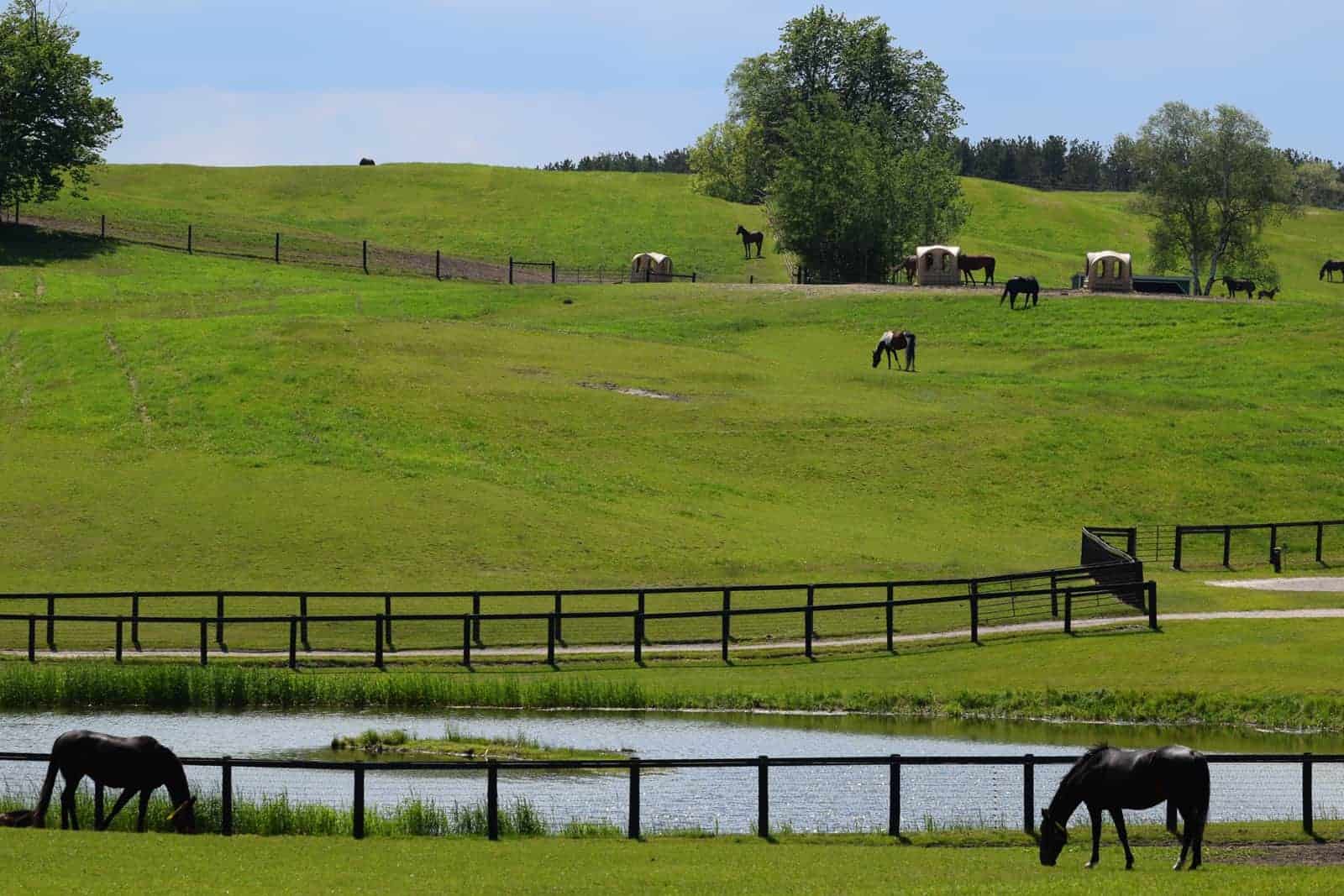Methods to Reduce Water Pollution From Horse Manure

“Yes, horses are natural; so in that case you need to make sure that you’re ‘using’ them in a natural system,” said Masud Parvage, PhD, of the Department of Soil and Environment at the Swedish University of Agricultural Sciences, in Uppsala. High concentrations of feed and horse manure—in paddocks, for example—can degrade local water quality and upset the water’s natural balances.
In their study, Parvage and his fellow researchers investigated how phosphorus, nitrogen, and carbon leach into runoff rainwater from two different kinds of horse paddocks: sand lots and dirt (clay) lots. Phosphorus, nitrogen, and carbon concentrations in water are standard indicators of water cleanness, and scientists have previously established acceptable thresholds of these concentrations. Essentially, the lower the concentrations, the cleaner the water.
The researchers tested samples from various areas of the paddocks in a laboratory setting with simulated rainfall, Parvage said
Create a free account with TheHorse.com to view this content.
TheHorse.com is home to thousands of free articles about horse health care. In order to access some of our exclusive free content, you must be signed into TheHorse.com.
Start your free account today!
Already have an account?
and continue reading.

Written by:
Christa Lesté-Lasserre, MA
Related Articles
Stay on top of the most recent Horse Health news with















